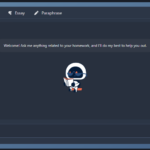You're always seeking ways to improve your SEO reporting, aren't you?
Imagine leveraging AI tools to do just that. Not only will they streamline your process, but they'll also provide insights you've never thought possible.
This article will show you the key benefits of AI in SEO analysis, how to choose the right tool, and where the future is heading.
So, why not dive in and see how AI can enhance your SEO reporting?
Understanding AI in SEO Analysis
In the realm of SEO analysis, you'll find that AI tools significantly simplify the process and increase efficiency. These tools act as your behind-the-scenes ally, tirelessly sifting through heaps of data, analyzing trends, and generating actionable insights.
Imagine you're trying to understand the performance of your website. You're looking at metrics like site traffic, bounce rates, click-through rates, and conversion rates. You know you need to improve, but where do you start? This is where AI's power comes into play. It can examine these metrics, identify patterns and pinpoint areas for improvement.
AI tools don't just regurgitate data; they interpret it in a meaningful way. They'll tell you what's working and what's not. They'll give you a clear picture of your site's performance and how it stacks up against your competitors. It's like having a seasoned SEO expert on your team, but without the high salary demand.
Moreover, you'll find that AI tools can predict trends based on historical data. They'll let you know what content resonates with your audience, when the best time to post is, and what keywords are likely to drive traffic. These predictions can be invaluable in shaping your SEO strategy.
Key Benefits of AI SEO Tools
As you delve deeper into the world of AI SEO tools, you'll discover a multitude of benefits that can significantly elevate your SEO reporting. These tools bring an unprecedented level of automation and precision to the table, helping you streamline your SEO efforts in ways you may not have considered possible.
Firstly, AI SEO tools can save you a considerable amount of time. By automating tasks such as keyword research, on-page optimization, and backlink analysis, you'll spend less time on tedious tasks and more time on strategic planning and implementation.
Secondly, these tools enhance precision in reporting. With AI, there's no room for human error. The technology ensures every detail is accurate, giving you a clear and precise view of your website's SEO performance. This accuracy allows you to make more informed decisions and implement effective strategies.
Thirdly, AI SEO tools offer predictive analysis. They use machine learning algorithms to analyze past trends and predict future ones. This can give you a competitive edge by helping you anticipate changes in search engine algorithms or consumer behavior.
Finally, AI SEO tools provide personalized insights. The technology understands your specific needs and tailors its analysis and recommendations to your unique situation. This level of personalization lets you focus on what matters most to your business, rather than trying to implement a one-size-fits-all strategy.
In a nutshell, AI SEO tools can save you time, increase accuracy, offer predictive analysis, and provide personalized insights. With these benefits, it's clear why the use of AI in SEO reporting is becoming increasingly popular.
Leveraging AI for Improved Reporting
You can leverage AI tools to significantly improve your SEO reporting, making it more precise, efficient, and personalized to your specific needs. AI tools are designed to handle vast amounts of data, sifting through it to identify trends and patterns that might be missed by the human eye. This means you'll get a comprehensive, in-depth report that's tailored to your website's unique needs and goals.
Let's illustrate this with an example: imagine you're trying to improve your website's ranking for a specific keyword. Without AI, you'd have to manually analyze all the data, which can be time-consuming and prone to errors. But with AI, the tool can automatically analyze the data, identify the most relevant factors affecting your ranking, and provide you with actionable insights.
Furthermore, AI tools can also help you stay ahead of the competition. They can track your competitor's activities, identify their successful strategies, and suggest ways to outperform them. This allows you to make strategic decisions based on real, up-to-date data, rather than simply guessing what might work.
In addition, AI tools can save you a lot of time. Instead of manually compiling reports, you can automate the process, freeing up your time to focus on implementing the strategies suggested by the AI.
Case Studies: AI in SEO Reporting
Over time, many businesses like yours have successfully used AI in their SEO reporting, and their case studies can provide valuable insights. Let's delve into a few examples.
Consider the case of a large e-commerce platform that implemented AI to enhance its SEO strategy. By using AI algorithms, the company was able to analyze search trends, optimize keywords, and predict future consumer behavior. The result? A 20% increase in organic traffic and a significant boost in conversion rates.
Another example is a healthcare website that used AI to better understand its audience. The AI tool was able to analyze incoming data, identify patterns and trends, and provide insights into what content resonates with their audience. This led to a 30% increase in site engagement and a 15% increase in organic search rankings.
You might also be interested in a tech startup that utilized AI for its SEO reporting. The startup used AI to automate the process of identifying and fixing broken links, improving site speed, and optimizing meta tags. This resulted in a 25% increase in web traffic and a substantial rise in search engine rankings.
These case studies demonstrate the potential of AI in SEO reporting. They show that AI can't only automate repetitive tasks but also provide deep insights and strategic recommendations, leading to improved performance and profitability.
Choosing the Right AI SEO Tool
Given the numerous AI tools available for SEO reporting, it's essential to select the one that best suits your business needs. It might seem overwhelming, but don't fret. Understanding your own requirements first will make the selection process smoother.
Consider your business goals. Are you looking to improve site traffic, increase conversions, or perhaps enhance user experience? Different tools excel in different areas, so align your choice with your objectives. Also, think about your resources. Some AI tools require a significant investment of time and money, others are more user-friendly and cost-effective.
Next, consider the tool's features. A good AI tool should be capable of keyword research, competitor analysis, backlink tracking, and on-page SEO analysis. It should provide actionable insights, not just raw data. It should also be able to adapt to changing SEO trends and Google algorithm updates.
Usability is another crucial aspect. You don't want a tool that's too complex for you or your team to use. Look for intuitive interfaces, clear instructions, and responsive customer support.
Lastly, always check out user reviews and ratings. They'll give you an idea of the tool's performance and reliability. Take advantage of free trials if they're offered. They'll allow you to test the tool's functionalities and see if it fits your needs before making any financial commitments.
Choosing the right AI SEO tool isn't just about buying the most expensive or popular one. It's about finding a tool that aligns with your business goals, fits within your resources, and offers the features you need for successful SEO reporting.
Future Trends in AI and SEO
With the right AI SEO tool in your arsenal, it's time to look ahead at the emerging trends in AI and SEO that'll shape your online strategy. As the digital landscape continues to evolve, so too do the tools and strategies you'll need to stay competitive. So, what's on the horizon?
First off, expect personalization to become even more critical. AI can analyze enormous amounts of data, including user behavior and preferences, to deliver highly personalized content. That means your SEO efforts will need to be laser-focused on understanding and meeting individual user needs.
Voice search is another trend that's not going anywhere. As more people use devices like Alexa and Siri, optimizing for voice search will become even more essential. The shift to voice search means you'll need to rethink your keyword strategy, focusing more on natural language and long-tail keywords.
AI also promises to make predictive analysis more precise. By analyzing user behavior and trends, AI can help you anticipate what content will perform well, allowing you to adjust your strategy proactively.
Finally, expect advancements in image and video SEO. As AI gets better at understanding visual content, optimizing images and videos for search will become increasingly important.
In short, the future of SEO is going to be heavily influenced by AI. By staying ahead of these trends and adapting your strategy accordingly, you'll be well-positioned to keep your site at the top of the search results.
Frequently Asked Questions
How Do AI Tools Protect My Data While Conducting SEO Analysis?
AI tools safeguard your data during SEO analysis by implementing advanced encryption and privacy measures. They're designed to handle sensitive data securely. You're also in control of your data and can manage permissions and access.
These tools don't share your information without your consent. Plus, they constantly upgrade their security features to counter emerging threats. So, while you're getting insightful SEO reports, your data stays protected.
What Are the Costs Associated With Implementing AI Tools for SEO Reporting?
You're probably wondering about the costs associated with implementing AI tools for SEO reporting. They can vary widely, depending on the specific tool you're considering. Some offer free trial periods, others charge a monthly or annual fee.
You've also got to factor in the time needed for training and integration. But remember, the improved efficiency and insights you'll gain could make the investment worthwhile.
It's a balance you'll have to weigh.
Are There Specific Industries or Businesses That Benefit More From Using AI SEO Tools?
Absolutely, certain industries can benefit more from AI SEO tools. If you're in e-commerce, digital marketing, or content creation, these tools can be a game-changer. They'll help you analyze massive data sets quickly, identify trends, and optimize your content.
But it's not just these industries. Any business with a significant online presence can see a boost in their search engine rankings with the right AI SEO strategies.
Can AI Tools for SEO Reporting Replace Human SEO Specialists?
While AI tools can significantly streamline SEO reporting, they can't fully replace human SEO specialists. You see, these tools are fantastic at crunching numbers and identifying trends, but they lack the human touch. They can't engage with your audience or craft creative content.
How Will Using AI Tools Impact the Day-To-Day Operations of My Business?
Incorporating AI tools into your day-to-day operations can streamline your business. They'll automate routine tasks, freeing up your time for more strategic work.
AI tools can also provide in-depth SEO reporting, helping you understand your website's performance and make data-driven decisions.
Plus, they're continuously learning, so you'll constantly receive updated insights.
You'll find your operations becoming more efficient and effective, giving your business a competitive edge.
Conclusion
So, why not embrace AI tools for SEO reporting? They offer you sharper analysis, more benefits, and improved reporting.
Existing case studies show AI's effectiveness in this field. Just ensure you're picking the right tool for your needs.
And remember, AI is the future of SEO. So, don't get left behind; start leveraging AI in your SEO strategies today.
















